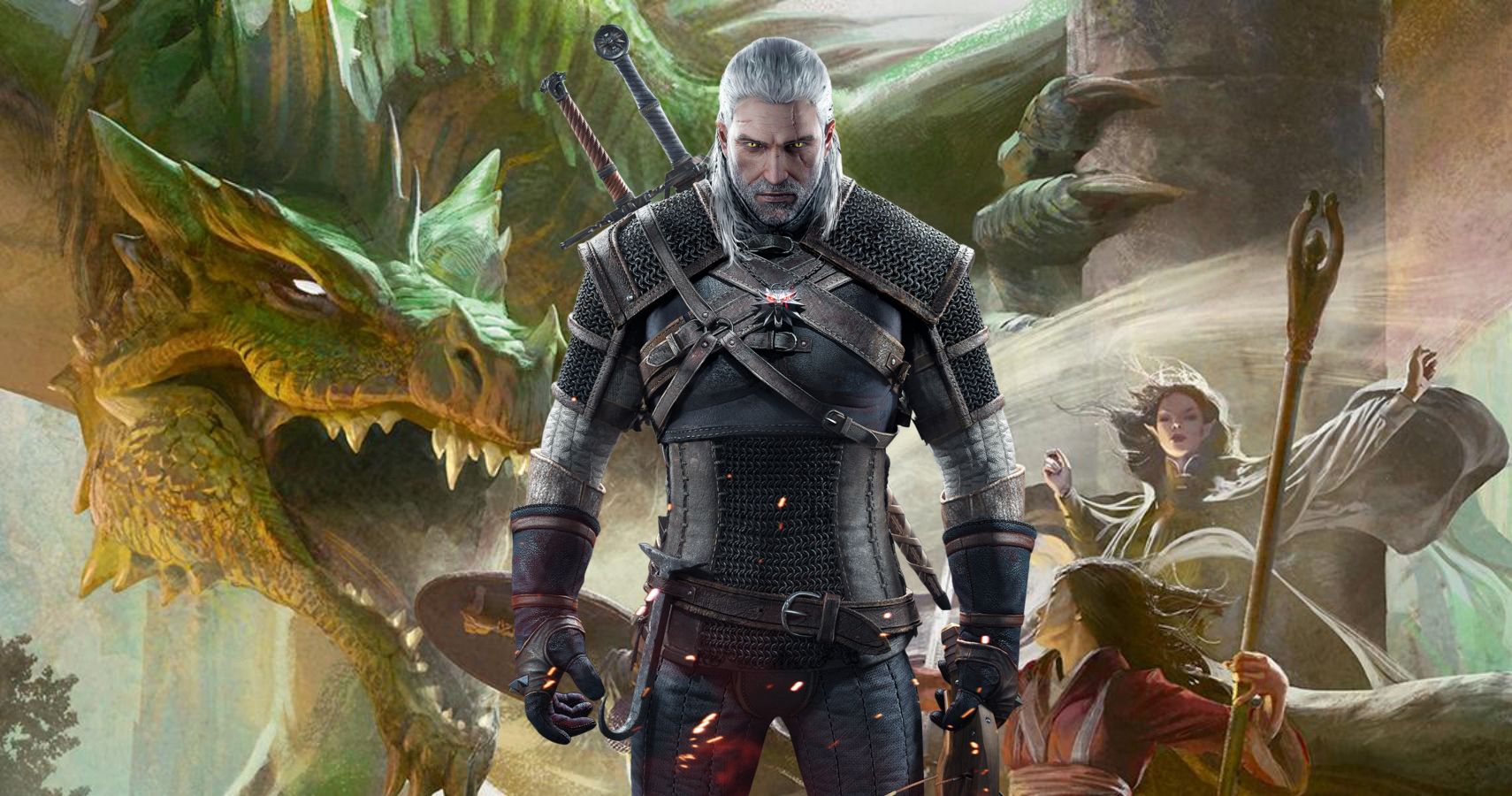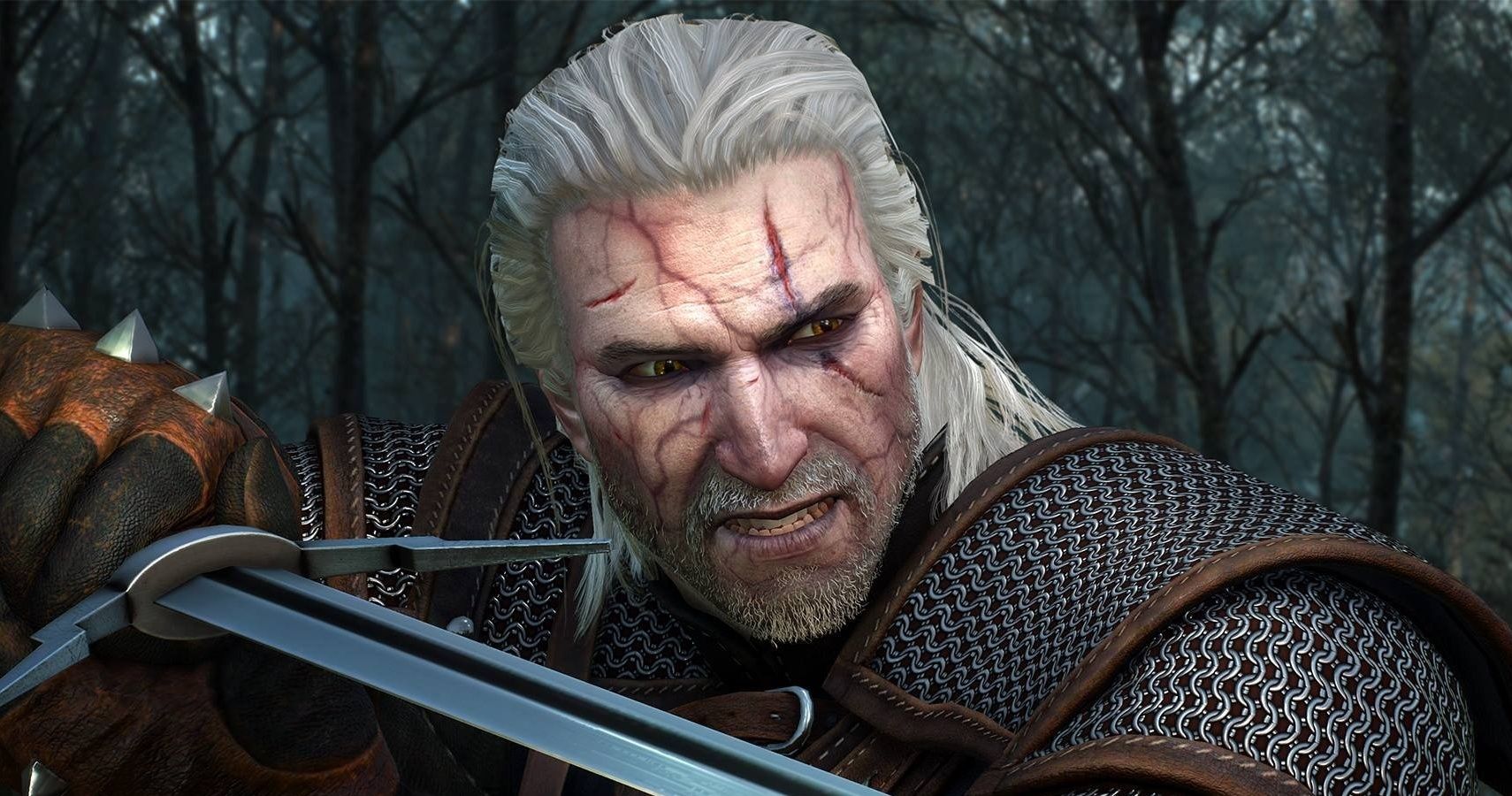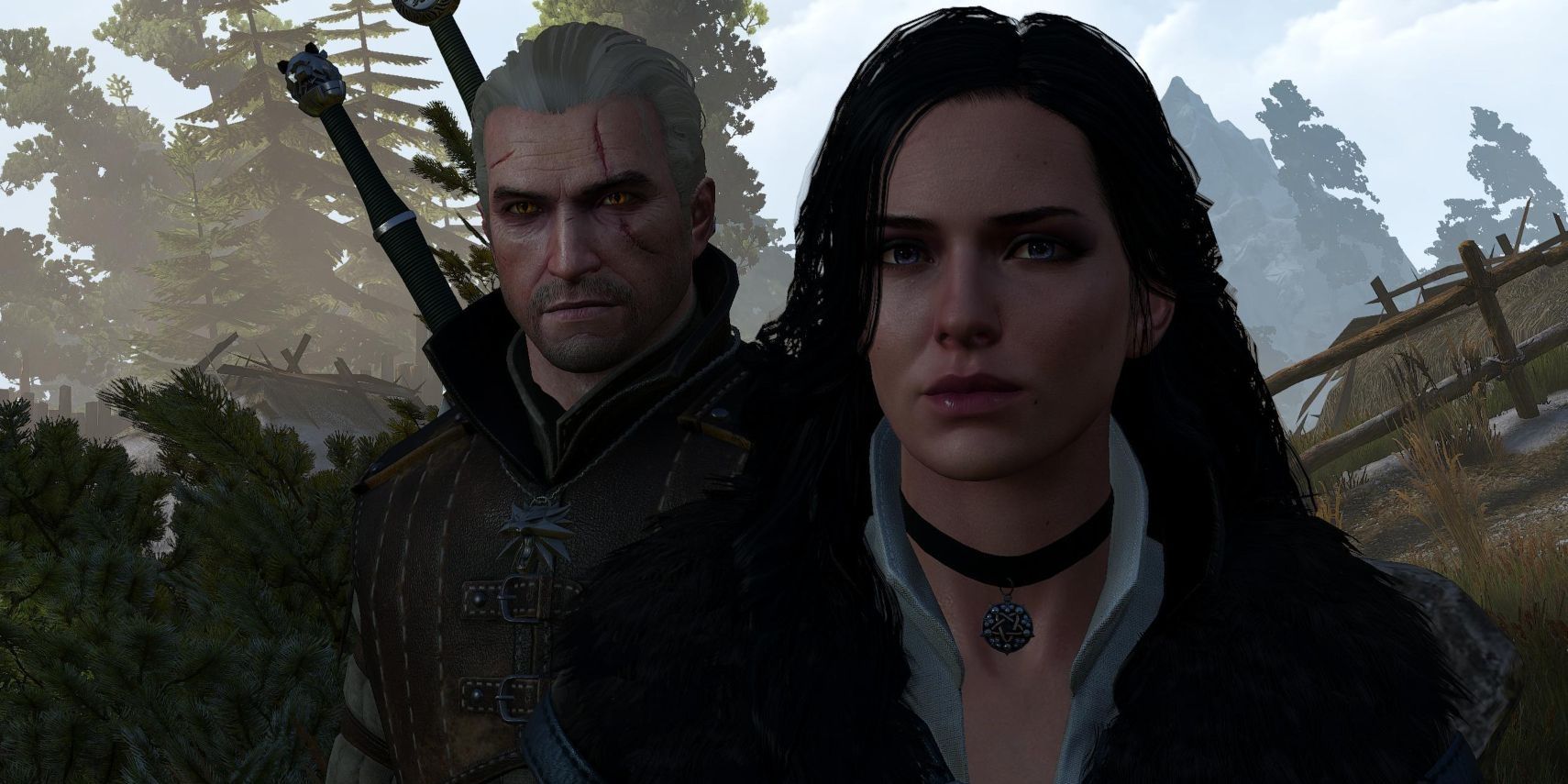The world of The Witcher could easily be repurposed into the setting of a Dungeons & Dragons campaign. In fact, there is already a tabletop RPG based on the series, called The Witcher Pen & Paper RPG. For the people who don't want to go to the effort of learning an entirely new set of rules, there is always the option of the player creating their own version of Geralt in D&D.
As the protagonist of a fantasy action RPG, Geralt meets a lot of the criteria for a D&D character. As a witcher, Geralt needs to be able to fight everything from groups of human bandits to giant flying monsters. Geralt is often called on to investigate crime scenes and locations where monsters have encroached upon society. He often needs to survive in the wilderness on his own for extended periods of time and he must navigate harsh environments on a regular basis. There's no doubt that Geralt is equivalent to rangers.
The version of Geralt we have created is made solely from material in the Player's Handbook. Geralt is a human (non-variant) ranger who later moves into the Hunter archetype. As such, his stats will be spread among the physical attributes and Wisdom, as this is used for spellcasting. Using the basic stat spread described on page 13 of the Player's Handbook and taking Geralt's race into consideration, his starting stats would be STR 16, DEX 14, CON 13, INT 11, WIS 15, and CHA 9. The low Charisma can be explained by the general distrust towards witchers in the setting and how Geralt often has to win people over with his actions.
Geralt's initial Favored Enemy would be monstrosities, followed by beasts at level 6 and fey at level 14, assuming that's what the Wild Hunt would fall under. For his Natural Explorer environment, Geralt should take grassland at level 1, swamp at level 6, and Underdark (or its campaign equivalent) at level 10. Geralt's Fighting Style would be Dueling (as he usually fights with one sword and no shield). Once he reaches level three, he will take the Hunter archetype, gaining Giant Killer at level 3, Escape the Horde at level 7, Whirlwind Attack at level 11, and Evasion at level 15. If the campaign is using the optional feat rules, them Geralt should take Martial Adept (Parry & Riposte) at level 4, Crossbow Expert at level 8, Keen Mind at level 12, Dungeon Delver at level 16, and Alert at level 19.
Geralt's background would be Outlander, giving him access to the Wanderer feature. His combined skills would then be Athletics, Animal Handling, Investigation, and Survival. The question of his alignment is a little trickier, as the player has the chance to shape Geralt's actions throughout The Witcher video games, so no two versions of the character are alike. As such, the more mercenary Geralt can be Lawful Neutral, while the more caring Geralt can be either Neutral Good or Chaotic Good. In terms of gear, Geralt would start with two longswords (silver and steel), a hand crossbow, a suit of studded leather armor, an explorer's pack, and a horse (Roach has to make it into the game somehow).
As a ranger, Geralt will start gaining access to spells from level 2 onward. These can replicate some of his abilities from the video games, but they're not a perfect fit (check with your DM to see if you can switch out some choices from the sorcerer or wizard spell list for effects similar to Aard, Agni, and Quen). From the ranger spell list, the most fitting choices for Geralt would be alarm, detect magic, detect poison and disease, hunter’s mark, longstrider, beast sense, locate animals or plants, locate object, protection from poisons, find traps, nondection, protection from energy, water breathing, locate creature, freedom of movement, stoneskin, swift quiver, tree stride.
A large part of Geralt's arsenal in The Witcher series is based around potions and oils that he brews himself, which helps him immensely when fighting monsters. There are rules for creating magic items, but they are optional and can only be found in the Dungeon Master's Guide. The player should check with the DM first to see if they are comfortable using these rules. It should also be pointed out that making magical items (even common potions) is neither quick nor cheap.
It bears mentioning that Geralt's abilities are intended for a character who mostly operates on his own. A D&D version of Geralt would likely be part of a party of adventurers and some of his functions could also be performed by primary spellcasters. With that being said, Geralt would still be an awesome addition to any group and there are entire worlds full of monsters out there that are just waiting for an encounter with a witcher.



